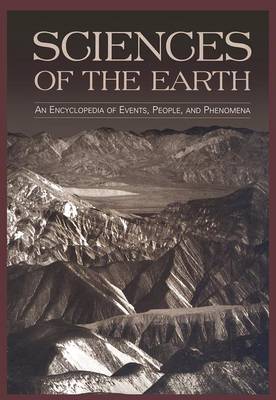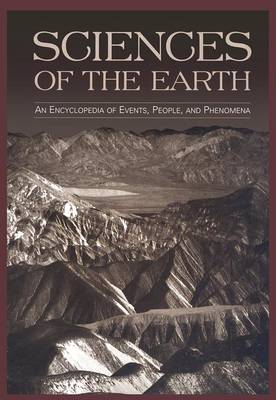
- Afhalen na 1 uur in een winkel met voorraad
- Gratis thuislevering in België vanaf € 30
- Ruim aanbod met 7 miljoen producten
- Afhalen na 1 uur in een winkel met voorraad
- Gratis thuislevering in België vanaf € 30
- Ruim aanbod met 7 miljoen producten
Zoeken
€ 473,45
+ 946 punten
Omschrijving
The planet as seen by its inhabitants In two millenia, our knowledge of the planet and its natural laws and forces has undergone remarkable changes--from the religious belief of earth as the center of the universe to the modern astronomers' view that it is a mere speck in the cosmos. Now a first-of-its-kind reference work charts this remarkable intellectual progression in our evolving perception of the earth by surveying the history of geology, geography, geophysics, oceanography, meteorology, space science, and many other fields. Covers human understanding of the Earth in various times and cultures The Encyclopedia traces our understanding of the earth and its functioning throughout history, summarizing historical explanations of earthly occurrences, including explanations with no scientific basis. It presents the latest facts and theories, explains how our understanding of the earth has evolved, and shows why many outrageous and fanciful earlier ideas were accepted in their time. The coverage explores the physical phenomena that inform our knowledge, starting at the earth's core and extending outward through the mantle, crust, oceans, and atmosphere to the magnetosphere and beyond. Charts the evolution of our perceptions The primary focus of the Encyclopedia is the history of the study of the earth. It also discusses the institutions that advanced and shaped science and probes the interplay between science, practical applications, and social and political forces. The result is a unified historical overview of the earth across a wide canvas of time and place, from antiquity to the space age. Its wide-ranging articles summarize subjects as diverse as geography and imperialism, environmentalism, computers and meteorology, ozone formation theories since 1800, scientific rocketry, the Scopes trial, and much more. Special Features Shows how diverse disciplines, from geology to space science, fit together in a coherent view of the earth * Explains earlier ideas and theories in the context of the beliefs and scientific knowledge of their time * Spotlights important institutions that have shaped the history of science * Explores relationships between science, practical applications, and sociopolitical concerns * Provides a subject index and an index of scientists with birth/death dates
Specificaties
Betrokkenen
- Auteur(s):
- Uitgeverij:
Inhoud
- Aantal bladzijden:
- 938
- Taal:
- Engels
- Reeks:
- Reeksnummer:
- nr. 3
Eigenschappen
- Productcode (EAN):
- 9780815300625
- Verschijningsdatum:
- 1/04/1998
- Uitvoering:
- Boek
- Afmetingen:
- 185 mm x 263 mm
- Gewicht:
- 1165 g

Alleen bij Standaard Boekhandel
+ 946 punten op je klantenkaart van Standaard Boekhandel
Beoordelingen
We publiceren alleen reviews die voldoen aan de voorwaarden voor reviews. Bekijk onze voorwaarden voor reviews.











